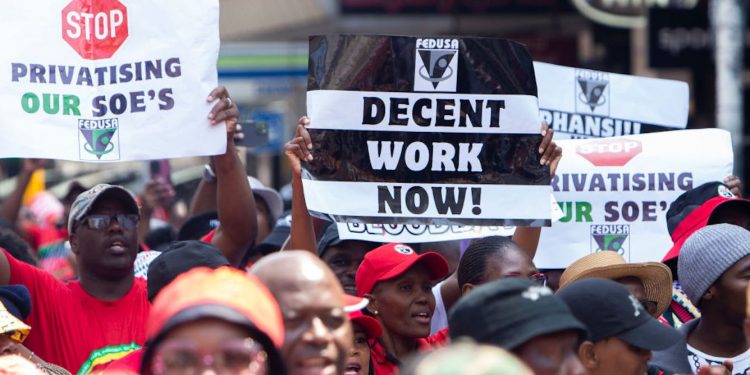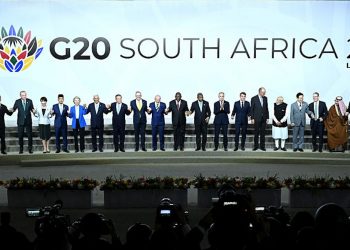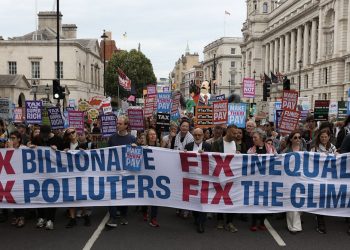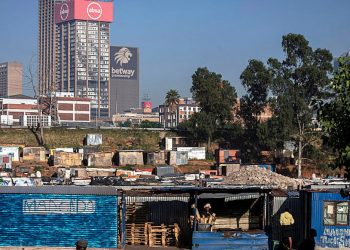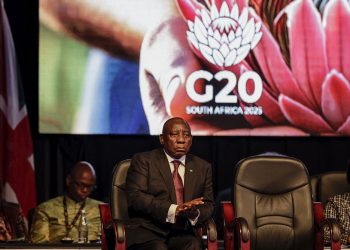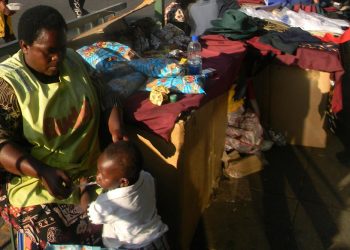The relationship between inequality and economic growth is a complex one, especially in Africa. Inequality is the result of a host of factors, including policy choices, institutional legacies and power structures that favour elites. Professor Imraan Valodia, director of the Southern Centre for Inequality Studies spoke to Ernest Aryeetey, emeritus professor of Development Economics at the Institute of Statistical, Social and Economic Research, University of Ghana about the issues.
What policy choices have African governments made that have worsened inequality?
Firstly, structural adjustment policies. Many African countries undertook these during the late 20th century, often encouraged by international financial institutions. These policies included public sector retrenchments, the removal of subsidies, and reduced social services. They disproportionately affected the poor by weakening the state’s role in redistributing public goods, and limiting access to essential services.
The programmes also increased income inequality by choosing free markets over social protection. Later efforts to address the consequences were often “too little, too late.”
Secondly, taxation and fiscal policies. Most tax systems in Africa have relied on indirect taxes (such as VAT or consumption taxes) rather than progressive, direct taxes on income and wealth. As a result, poorer households often bear a heavier relative tax burden while the wealthiest benefit from exemptions or evasion.
Early post-independence taxation rarely did much to redistribute wealth, and efforts to tax the informal sector have been minimal or poorly designed. They have failed to capture significant resources for social spending.
Thirdly, education and healthcare investment. Policy choices have often perpetuated access gaps between urban and rural populations and among socioeconomic classes. Investments tended to favour cities and privileged groups, so that not everyone had the same opportunities. This “urban bias” in public spending reinforced existing inequalities. Rural people’s needs remained unmet.
Fourthly, weak social protection. Until the expansion of more comprehensive schemes in the 2000s, many Africans were left poor and vulnerable, without adequate safety nets.
Fifth, economic structures favour elites. African governments have often maintained or even reinforced economic structures that concentrate wealth and opportunity for just a few. Examples include policies favouring extractive industries or resource sectors controlled by politically connected groups. Land tenure, trade policies and access to state contracts and licences have frequently favoured the powerful.
Sixth, limited regional and gender inclusion. Early public policies rarely met the needs of women, youth, rural areas, or marginalised regions. Exclusion from land ownership or financial services, and limited emphasis on affirmative action, reinforced systemic inequalities. Only in recent decades have some governments begun to address these gaps, but progress remains uneven.
Are these choices linked to the capture of public policy by elites?
Yes. Privileged groups have often shaped or manipulated state policies in ways that protect their interests and reinforce inequality.
Colonial and postcolonial legacy. Policies and institutions established during and after colonialism often allocated resources and power to a narrow elite, either colonial settlers, expatriates or local collaborators. Today’s elites inherited and sustained many of these structures. They still control wealth, land, and market opportunities.
Economic structure and resource control. Many African economies remain oriented around extractive industries and primary commodities such as oil and minerals. Policies around resource extraction, trade and land tenure have often favoured elites through preferential access, tax exemptions and regulatory loopholes.
Policy design and fiscal choices. The design of tax systems has typically favoured indirect taxes (like VAT). These do not affect elite wealth. Efforts to tax high incomes, property or capital gains are underdeveloped or easily evaded.
Read more:
Tax season in South Africa: the system is designed to tackle inequality – how it falls short
Social protection and service delivery. Safety nets and public goods (like quality education, healthcare, or infrastructure) often target formal sector workers or urban residents (where elites reside). They neglect the informal sector, rural poor and marginalised groups.
Political patronage and governance. State resources, positions and contracts go to loyalists, family members, or ethnic/regional networks.
What have been the 3 biggest inequality drivers?
Firstly, regressive fiscal policies. These include broad based taxes such as transaction levies and VAT. They take a larger share of low income earners’ cash flows. Wealthier groups benefit from exemptions or low tax rates.
Secondly, rapid, elite led privatisation and market liberalisation. Selling state assets or opening key sectors (energy, telecoms and transport) to politically connected investors concentrates profits and market power. Informal workers and small firms are left with reduced earnings.
Patronage, corruption and political capture keep things that way.
Thirdly, under-investment in universal social services. Cuts to health, education and social safety nets limit upward mobility for the poor and maintain regional and gender gaps.
Lastly, resource dependence and economic structure. Many African economies focus on industries like oil, minerals and cash crops. These benefit political and business elites but don’t diversify industries or create jobs. The benefits of growth go mostly to the already privileged. Most citizens and entire regions are excluded.
Which countries have managed best to change this?
Rwanda has a progressive income tax structure. Low value mobile money transactions are exempt from tax. Key utilities such as electricity and water remain largely public, which has reduced the impact of taxes on the poor.
Rwanda has also made efforts towards inclusive governance. Examples include quotas for women, investments in health and education, and a focus on rural inclusion.
Botswana has pursued a cautious privatisation agenda. The state retains majority ownership in diamonds, telecoms and banking. Revenues were channelled into universal primary education and health.
Despite its dependence on diamonds, it does well at channelling resource wealth into national savings, infrastructure and public services. This while maintaining relatively high institutional quality and political stability.
Ethiopia, pre 2020 reforms which saw the role of the private sector being broadened.
Before then, the country had focused on massive public investment in primary education, health extension services and rural road networks. At the same time it avoided large scale privatisation of basic utilities. This limited the social service gap.
In addition, it has invested in manufacturing and export-led growth. This has generated jobs and gradually shifted the economy away from depending on primary commodities. Inequality has reduced compared to resource-dependent peers.
Have technology advances affected inequality differently on the continent?
Yes.
Technology has the potential to reduce inequality by expanding access to markets, services, information and financial inclusion. But gaps in digital infrastructure, affordability and skills have caused technology to sometimes reinforce, rather than alleviate, disparities in African countries.
-
Digital divide and urban-rural gaps. Access to digital technologies is highly uneven. Rural areas, the poor, women and less-educated groups are less likely to use the internet or benefit from digital services. This divide is much starker in Africa than in advanced economies, where technology adoption is nearly universal. As a result, new technologies can benefit urban, educated and higher-income groups the most. This widens inequalities if not accompanied by robust, inclusive policies.
-
Mobile leapfrogging, but patchy inclusion. Africa’s rapid leap to mobile phone use has often skipped fixed-line infrastructure. This has brought financial inclusion and new markets to millions, such as M-Pesa in Kenya. Still, large parts of the continent remain excluded due to affordability, lack of electricity, limited digital skills and language barriers.
-
Economic structure and global value chains. Limited integration into global value chains and a small high-tech sector mean most jobs on the continent remain in low-productivity informal work.
Why do the effects differ?
Firstly, late, unequal adoption. The industrial revolution and subsequent technological advances arrived late and unevenly. Colonial and postcolonial legacies left Africa behind in both education and infrastructure. This made it harder for broad segments of the population to benefit from new technologies.
Infrastructure scarcity forces societies to adopt mobile solutions directly, bypassing legacy banking but also making them vulnerable to policy shocks.
Secondly, policy and market failures. Inadequate regulation, weak competition and high costs of devices and data are brakes on digital transformation. Digital public goods, such as e-government and online education, reach only connected groups. And digital skills gaps further entrench the social digital divide.
Imraan Valodia receives funding from a number of foundations and institutions that support independent academic research.

